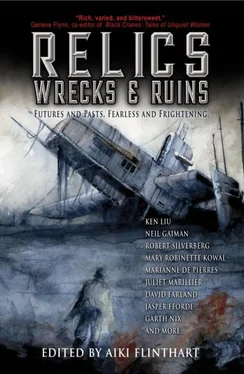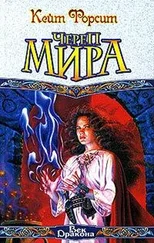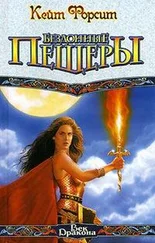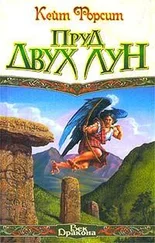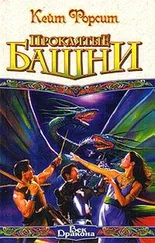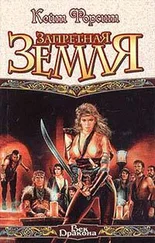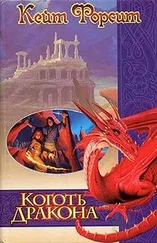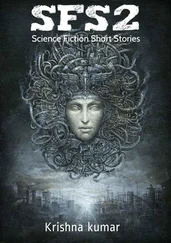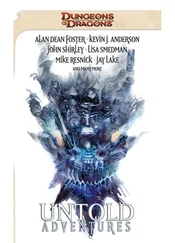He tried to reverse the spell but the power he had taken from a hundred thousand Merdrun exploded out in all directions. It seared the leaves off the trees, gouged up grass and earth, toppled copses and fences, and blasted all the water out of the stream for hundreds of yards.
And Skald, who had been nothing but power and consciousness, was obliterated.
The ground shook, and all around us charred leaves drifted down, covering the grass like black snowflakes. When it finally stopped there was no trace of the being once known as Skald.
“It’s over,” said Flydd. “He’s been unmade.”
My hands wouldn’t stop trembling I snatched the goblet from Dad’s hand and downed the contents in a gulp. “What… what about the Merdrun in the crater?”
“That cataclysm would have torn his stasis spell apart,” said Flydd, “and no one could have survived it. But they wouldn’t have known. Their torment’s over.”
Uletta squeezed the shard between her strong fingers and it melted, vaporized, and vanished. The last deadly relic of the Crimson Gate that had corrupted the tragic Merdrun long ago, and ruined their hopes and dreams, was gone.
“And I can have peace,” she said.
She drifted back towards her grave, becoming more wraithlike by the second, and plunged down through the grass into the mound.
“How about Malien?” I said quietly.
Flydd put a bony arm around my shoulders. “‘One last adventure,’ she said. She would have been happy to go that way.”
I supposed so. She had been a very old woman. But Malien had always done her best when I was in trouble, and I would miss her.
Around us, people emerged from their hiding places, and hugged and laughed and wept. Mother threw her arms around me and my father embraced us both. Suddenly I felt such a vast upwelling of hope and optimism, and the infinite possibilities of life, that for a few seconds, I was floating. The blight on Santhenar had lifted.
I looked back towards my studio, and the work I’d used as an escape all this time. “Damn the etchings!” I said. “Let’s have that reunion.”

The Wind and the Rain
By Robert Silverberg
The planet cleanses itself. That is the important thing to remember, at moments when we become too pleased with ourselves. The healing process is a natural and inevitable one. The action of the wind and the rain, the ebbing and flowing of the tides, the vigorous rivers flushing out the choked and stinking lakes—these are all natural rhythms, all healthy manifestations of universal harmony.
Of course, we are here too. We do our best to hurry the process along. But we are only auxiliaries, and we know it. We must not exaggerate the value of our work. False pride is worse than a sin: it is a foolishness. We do not deceive ourselves into thinking we are important. If we were not here at all, the planet would repair itself anyway within twenty to fifty million years. It is estimated that our presence cuts that time down by somewhat more than half.
#
Today we must inject colored fluids into a major river. Edith, Bruce, Paul, Elaine, Oliver, Ethel, Ronald, Edward, and I have been assigned to this task. Most members of the team believe the river is the Mississippi, although there is some evidence that it may be the Nile. Oliver, Bruce, and Edith believe it is more likely to be the Nile than the Mississippi, but they defer to the opinion of the majority.
The river is wide and deep and its color is black in some places and dark green in others. The fluids are computer mixed on the east bank of the river in a large factory erected by a previous reclamation team. We supervise their passage into the river.
First, we inject the red fluid, then the blue, then the yellow; they have different densities and form parallel stripes running for many hundreds of kilometers in the water. We are not certain whether these fluids are active healing agents—that is, substances which dissolve the solid pollutants lining the riverbed—or merely serve as markers permitting further chemical analysis of the river by the orbiting satellite system. It is not necessary for us to understand what we are doing, so long as we follow instructions explicitly.
Elaine jokes about going swimming. Bruce says, “How absurd. This river is famous for deadly fish that will strip the flesh from your bones.” We all laugh at that. Fish? Here? What fish could be as deadly as the river itself? This water would consume our flesh if we entered it, and probably dissolve our bones as well. I scribbled a poem yesterday and dropped it in, and the paper vanished instantly.
#
In the evenings we walk along the beach and have philosophical discussions. The sunsets on this coast are embellished by rich tones of purple, green, crimson, and yellow. Sometimes we cheer when a particularly beautiful combination of atmospheric gases transforms the sunlight. Our mood is always optimistic and gay. We are never depressed by the things we find on this planet. Even devastation can be an art form, can it not? Perhaps it is one of the greatest of all art forms, since an art of destruction consumes its medium, it devours its own epistemological foundations, and in this sublimely nullifying doubling-back upon its origins it far exceeds in moral complexity those forms which are merely productive. That is, I place a higher value on transformative art than on generative art. Is my meaning clear?
In any event, since art ennobles and exalts the spirits of those who perceive it, we are exalted and ennobled by the conditions on Earth. We envy those who collaborate to create those extraordinary conditions. We know ourselves to be small-souled folk of a minor latter-day epoch; we lack the dynamic grandeur of energy that enabled our ancestors to commit such depredations. This world is a symphony.
Naturally you might argue that to restore a planet takes more energy than to destroy it, but you would be wrong. Nevertheless, though our daily tasks leave us weary and drained, we also feel stimulated and excited, because by restoring this world, the mother-world of mankind, we are in a sense participating in the original splendid process of its destruction. I mean in the sense that the resolution of a dissonant chord participates in the dissonance of that chord.
#
Now we have come to Tokyo, the capital of the island empire of Japan. See how small the skeletons of the citizens are? That is one way we have of identifying this place as Japan. The Japanese are known to have been people of small stature. Edward’s ancestors were Japanese. He is of small stature. (Edith says his skin should be yellow as well. His skin is just like ours. Why is his skin not yellow?)
“See?” Edward cries. “There is Mount Fuji!” It is an extraordinarily beautiful mountain, mantled in white snow. On its slopes one of our archaeological teams is at work, tunneling under the snow to collect samples from the twentieth-century strata of chemical residues, dust, and ashes.
“Once there were over seventy-five thousand industrial smokestacks around Tokyo,” says Edward proudly, “from which were released hundreds of tons of sulfur, nitrous oxide, ammonia, and carbon gases every day. We should not forget that this city had more than 1.5 million automobiles as well.” Many of the automobiles are still visible, but they are very fragile, worn to threads by the action of the atmosphere. When we touch them, they collapse in puffs of grey smoke.
Edward, who has studied his heritage well, tells us, “It was not uncommon for the density of carbon monoxide in the air here to exceed the permissible levels by factors of two hundred and fifty percent on mild summer days. Owing to atmospheric conditions, Mount Fuji was visible only one day of every nine. Yet no one showed dismay.”
Читать дальше
